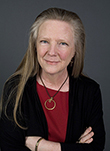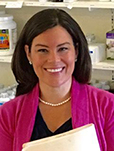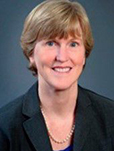What is Functional Medicine?, Feb / Mar 2017
By Stephanie Colo Manning
With the rise in chronic health conditions, many people are turning to Functional Medicine in search of true, long-term wellness. In doing so, they move away from symptom-suppressing medications in favor of addressing root causes of their illness and supporting the body’s natural healing process.
What is Functional Medicine; How Does it Compare to Other Models?
Conventional Medicine (a.k.a. Allopathic or Western Medicine) is the medical model of health care most of us grew up on. This model leverages the tools of modern medicine to detect health issues, relieve pain, and correct damage from acute and chronic conditions. Thankfully, Conventional Medicine saves lives every day.
With the rise in chronic health conditions, many medical professionals and their patients are incorporating aspects of Functional Medicine.
“Functional Medicine is a system of thinking,” says Martha Calihan, M.D., founder of the Five Stones Healing Arts & Wellness Center in Leesburg, Virginia. “It’s the approach of getting to the root causes of a person’s symptoms or condition and trying to understand the core imbalances that led to it,” she says. “It offers an opportunity to treat differently.”
“Most Functional Medicine physicians have an Integrative Medicine mindset, but not all,” says Calihan. Integrative Medicine combines modern and traditional tools with lifestyle intervention to treat the individual. Prescription medications are sometimes used in the short-term while a long-term approach to wellness is pursued.
Holistic Medicine looks at the whole person and their environment, not just a body part or system. “Both Integrative and Functional Medicine tend to be holistic in approach,”
says Calihan.
This represents a whole shift in the way many doctors are looking at medicine today. “When I was in my Western Medicine practice, I was very frustrated that my patients would come in year after year with more medications and getting sicker,” says Laura Stone, M.D., who works at the Virginia Center for Health and Wellness in Aldie, VA, founded by Andrew Heyman, M.D.
“I see Functional Medicine as a critical component of being able to address our epidemic of chronic diseases,” says Calihan. “The current approach of adding more pharmaceuticals is not working and is not sustainable. People need to be educated about the possibilities.”
Functional Medicine Leaders Nationwide
Functional Medicine has grown in the United States and abroad. The Institute of Functional Medicine calls it “an evolution in the practice of medicine that better addresses the healthcare needs of the 21st century […] a movement away from a one-size-fits-all medicine to a personalized, systems-based medicine.”
Some early, well-known national leaders include:
• Jeffrey Bland, PhD. says the last century was all about “conquering acute infectious disease” but in the 21st century, “it is chronic illness that deprives us of our health and is killing us slowly.”
• Mark Hyman, M.D. says, “Placing too much emphasis on a yes/no diagnosis, meaning you either have a disease or you don’t, can lead even the most well-meaning physicians to miss underlying causes and early warning signs of illness.”
• Andrew Weil, M.D. opened True Food Kitchen in several cities, including Fairfax, Virginia. Weil says, “A healthy diet is the cornerstone of a healthy lifestyle.”
Local Functional Medicine Leaders Share Experiences
How exactly do practitioners view a patient as a whole person, not just as an isolated set of symptoms?
Jacki Meinhardt is an Integrative Medicine Nurse Practitioner who also works at the Virginia Center for Health and Wellness. Her patients present with all kinds of elusive symptoms to include pain, headaches, aching joints, skin rashes, hair loss, weight gain, brain fog, depression, sleep problems, fatigue, IBS, gas, bloating, heartburn, and/or frequent diarrhea/constipation.
Some of these patients have been previously diagnosed with Fibromyalgia, Chronic Fatigue Syndrome, Depression, IBS, Diabetes, Seizure Disorder, Executive Function Disorder, Parkinson’s, Lyme, Gastric Reflux, Fatty Liver, or an autoimmune disease such as Hashimoto’s Thyroid, Crohn’s, Ulcerative Colitis, Celiac, Rheumatoid Arthritis, Psoriasis, Eczema, Asthma, Multiple Sclerosis, or Lupus.
Often, symptoms and conditions like these mean multiple things are going on. Meinhardt likes to look at the systems in our body as a clock. “They are intricately connected, just like a clock’s complex gear mechanisms. If one gear isn’t working, then other organ systems aren’t going to work, so the clock is going to be too slow, too fast, or not work at all.”
Functional Medicine practitioners deeply and systematically explore to gain a comprehensive view of the patient’s inner workings. They spend significant time with the patient looking for patterns and interactions between their history, dayto-day life, and genetics. They perform physical exams and comprehensive diagnostic testing to identify imbalances in the body that explain why the patient is sick. Findings may include imbalanced gut flora from antibiotic use; nutrient depletion or enzyme issues from medication use; malabsorption from dietary and gut issues; hormone imbalance from stress, sleep, or environmental factors; or underlying infections. “It could all be related or caused by something completely different. The art of medicine is in deciphering each puzzle piece,” says Meinhardt.
A common treatment for gut-related symptoms is Remove-Replace-Reinoculate-Repair-Rebalance: remove the bad that’s negatively affecting the body; replace the good that the body is missing; reinoculate with beneficial bacteria; repair by supporting the body’s natural healing mechanisms; rebalance lifestyle factors such as diet, sleep, exercise, and stress.
Improvements are often seen quickly “if the patient is open-minded and willing to make changes,” says Stone. “Patients who are ready to do some work to improve their health make it easy!” says Calihan. “The experience of feeling better, seeing their labs improve and getting off prescription medications – this helps people stay very motivated.”
Is Functional Medicine Right For You?
To read about how Functional Medicine helped two Northern Virginia moms, see How Functional Medicine Changed Our Lives in this issue. Then ask yourself if Functional Medicine might be right for you:
o Have you seen multiple doctors and you haven’t gotten the answers you need? Are you wondering, “Why aren’t I feeling better?”
o Have you been told all your tests are normal? Are you frustrated?
o Do you have pain, headaches, aching joints, skin rashes, hair loss, weight gain, brain fog, depression, sleep problems, fatigue, IBS, gas, bloating, heartburn, and/or frequent diarrhea/constipation?
o Have you been diagnosed with Fibromyalgia, Chronic Fatigue Syndrome, Depression, IBS, Diabetes, Seizure Disorder, Executive Function Disorder, Parkinson’s, Lyme, Gastric Reflux, Fatty Liver, or an autoimmune disease such as Hashimoto’s Thyroid, Crohn’s, Ulcerative Colitis, Celiac, Rheumatoid Arthritis, Psoriasis, Eczema, Asthma, Multiple
Sclerosis, or Lupus?
o Do you have a chronic, complex condition and are looking for a new approach to treat you as a whole person?
o Have standard medications not been enough for you? Are they producing side effects that lead to more medications?
o Do you want to get to the underlying root cause of your symptoms?
o Are you ready to take ownership of your health? Are you motivated to make changes in your life? Are you ready to commit to follow up?
o Are you sick and tired of feeling sick and tired?
Don’t be complacent and don’t give up. Get curious and ask questions. A Functional Medicine practitioner can help you take control. We are fortunate to have several in Northern Virginia and the greater Washington DC metro area. To find the right provider for you, “Ask your friends and neighbors where they have been and how they were able to find a new path to health,” says Stone. Ask questions to ensure the provider is well qualified to bring treatment tailored to your own individual needs. Ensure that they’ll walk down the road with you and be a true advocate in your court.
The information presented is for general interest and is not intended as medical advice.
BIO: Stephanie Colo Manning is the owner of Colo Kitchen, where she does holistic nutrition consulting helping clients transition away from processed and inflammatory foods in favor of a whole food diet. She also teaches nutritional cooking classes, writes nutrition articles, and engages in community outreach with local schools, farmers, and health professionals. Inspired by how dietary changes improved her own health, she wants to help others achieve this, too.
Previously, she worked as an electrical engineer and product manager at various technology manufacturers. Stephanie has been chef-owner of a small catering company as well.
Stephanie holds a Bachelor of Science in Electrical Engineering degree from the State University of New York at Buffalo and is actively pursuing a Master of Science in Holistic Nutrition degree from Hawthorn University. She has also taken numerous culinary courses from Culinary Institute of America, L’Academie de Cuisine, and others.
Email Stephanie at ColoKitchen@gmail.com or visit ColoKitchen.com.

Figure 1: Jacki Meinhart looks at the systems in our body as a clock – they are intricately connected, just like a clock’s complex gear mechanisms.

STEPHANIE COLO MANNING
Is the owner of Colo Kitchen, where she uses holistic nutrition consulting to help clients transition away from processed and inflammatory foods in favor of a whole food diet. Manning holds a Bachelor of Science in Electrical Engineering degree from the State University of New York at Buffalo and is actively pursuing a Master of Science in Holistic Nutrition degree from Hawthorn University. Email her at ColoKitchen@gmail.com or visit ColoKitchen.com.

MARTHA CALIHAN:
Martha Calihan, M.D., has been practicing medicine in Northern Virginia for over 25 years. She founded the Five Stones Healing Arts & Wellness Center in Leesburg, Virginia, which offers both clinical care and wellness programs (fivestoneswellness.com).
She has been awarded the “Best of Loudoun” for alternative medicine since 2007.

JACKI MEINHARDT:
Jacki Meinhardt, F.N.P., works at the Virginia Center for Health and Wellness in Aldie, Virginia, founded by Andrew Heyman, M.D. (vc4hw.com).
She focuses on Chronic Inflammatory Response Syndrome, vector borne illnesses, chronic fatigue, chronic pain, thyroid and adrenal management, detoxification and autoimmune diseases.
Jacki also researches and teaches at Georgetown University.

LAURA STONE
Laura Stone, M.D., also works at the Virginia Center for Health and Wellness in Aldie, Virginia (vc4hw.com). She has focused on gynecology and women’s health since 1992. When personal health issues were not being solved through traditional western medical approach, she began to explore functional medicine.
She now offersan integrative approach to her patients.
